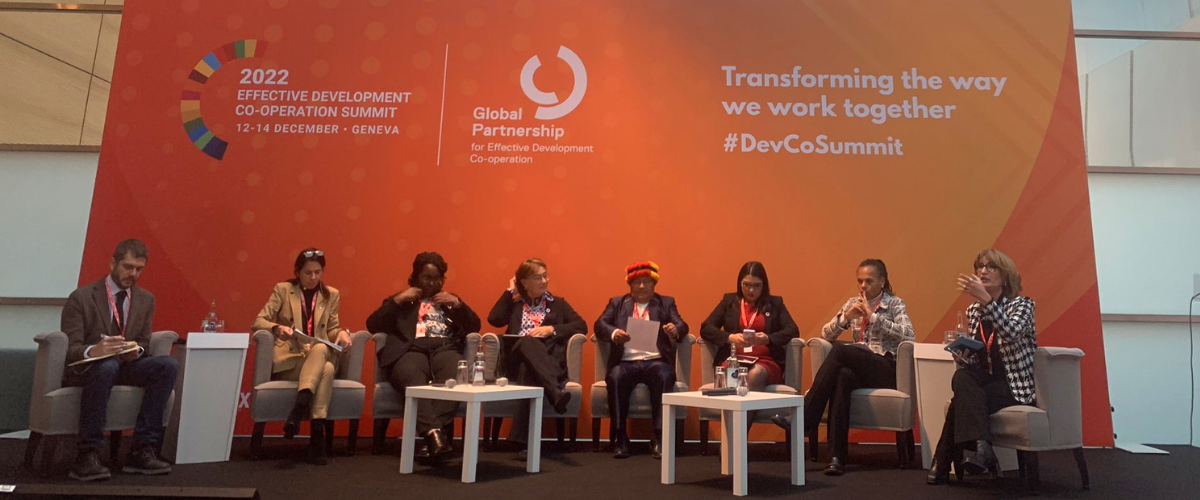The Cooperation Effectiveness Summit points out the importance of training

At the 6th High-Level Meeting of the Global Partnership for Effective Development Cooperation, held on December 12 and 13 in Geneva, local and regional governments pointed out the importance of having sufficient capacities to be able to take advantage of the possibilities of cooperation.
Regional governments, and particularly ORU Fogar, have actively followed the debate on effectiveness and have participated constructively in the work of the Global Alliance on Cooperation Efficiency (participating in its Executive Committee since 2014). Thus, it has allowed regional governments to affirm the validity of the principles of ownership, focus on results, inclusive alliances, and transparency and mutual accountability. The decrease in resources allocated to cooperation, however, has forced, at this summit, to reconsider some issues.
Capacities have undoubtedly been a fundamental issue. In the session "Local governments, decentralization and budget support", various speakers pointed out the difficulty for local and regional governments in many countries to be able to opt for international cooperation, due to lack of access to information, due to the complexity of the calls or due to the lack of technical teams to prepare projects. Faced with this situation, the ORU Fogar manifesto presented at the Summit bet on “the creation of technical capacity, often from a horizontal exchange between equals. It is a totally relevant modality in a context like the current one, marked by the existence of common challenges, by the need to learn in common, and to build joint solutions. The regions commit to give new impetus to the creation of technical capacity, identifying larger projects in this regard, and associating new agents and alliances with them that contribute more scope to our actions. Specifically, we will make an effort to connect with national and international cooperation and the European Union, in order to participate in joint projects where the experience of regional public administrations is mobilized”.
Rafael Antuni, prefect of Morona Santiago, Ecuador, presented a very good example in this regard. He explained that, in his province, there are 1 million 300 thousand hectares of virgin forest, and in the neighboring Amazonian provinces up to 5 million. The native peoples continue to live on these lands. This virgin space in which oxygen and water continue to be pure, however, needs sustainable management. In this sense, the prefect called for help so that, valuing the territory, making it productive for its inhabitants, it can be preserved.
The context of this Summit has also made it necessary to underline, as never before, the importance of aligning objectives, priorities and resources between the different levels of government, fostering communication and mutual trust. Local and regional governments defended inclusive processes that allow the participation of a greater number of territorial actors, in a multilevel action, in the face of competition between administrations or the fragmentation of priorities.
In this last sense, the intervention of Yoya Alcoceba, general director of the Catalan Cooperation, was very significant, who explained that in times of budget reduction, Catalan cooperation has explored innovative ways of financing cooperation, participating in European projects or financing the percentage that southern regions should contribute to European projects. "Today -said the general director- we have great threats, but also great opportunities and many capacities that we must know how to play well".
The commitment of regions before the 2022 Effective Development Cooperation Summit










































































